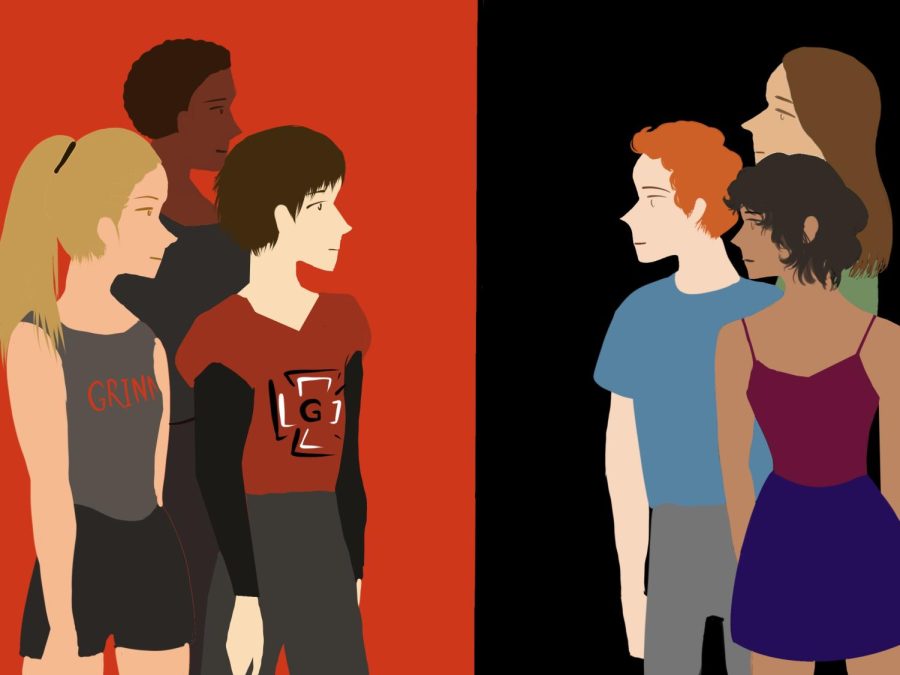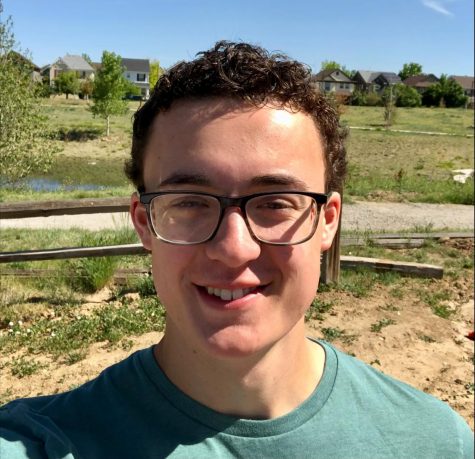An Investigation into the Social Divide on Campus
September 19, 2022
On Sept. 4, I attended the first event in Grinnell’s Symposium on Title IX — a months-long program celebrating the landmark legislation’s 50th anniversary. For this initial discussion, the college brought in four alumni to discuss student athletics. They fielded questions on a variety of subjects, ranging from the Chicago Sky to Grinnell football’s 1998 record. In this wide-reaching talk, however, I noticed the conversation veering repeatedly toward the same two topics.
First, I heard the speakers passionately defending the value of student athletics. Touting the academic, social and professional advantages to varsity sports, they appeared not just content but proud of their choice. Even though the speakers varied in age, having graduated between 1977 and 2015, they all concurred in their endorsement. Clearly, Grinnell College athletics meant something.
Meanwhile, also reemerging was what one audience member called “anti-jock sentiment”: the idea that non-athletes on campus look down upon athletics. Kit Wall `77 referred to it as “the elephant in the room.” Even President Anne Harris, before asking an unrelated question to the panel, took time to address the issue. “There’s something to consider,” she admitted, “We think about this at the senior leadership level.” After the session, she shared that she’d heard from numerous students who hide their athletic participation from classmates, in order to avoid judgment.
I’m Carter Ottele, Class of `25. I’m not a varsity athlete, though I do play on the Grinnellephants club frisbee team. This semester, I’m investigating this idea of a social divide between athletes and non-athletes. There’s a tension between the two groups, characterized by mistrust and judgment, and I aim to illuminate this issue.
For context, my high school lacked any sports teams. Prior to Grinnell, I had little exposure to the nuanced politics of varsity athletics and their impact on school culture. What I knew, I’d mostly picked up from secondhand accounts—friends at other schools, social media, TV shows, etc. I assumed that these unreliable sources had exaggerated the issue beyond recognition, and I believed that Grinnell wouldn’t have a social divide like in the movies.
To some extent, I wasn’t wrong; Grinnell has yet to feel like a John Hughes film. As I begin my sophomore year, however, I don’t think I was completely right either. Some troubling similarities have emerged between the rigidly predetermined social structure of popular culture’s schools, and the awkward, implicit discord behind Grinnell’s social life. Here, the star quarterback may not be dating the head of the cheerleading squad; yet, I have always sensed a remnant of that dynamic, a perception of hierarchy and exclusion.
Since then, my peers have confirmed my doubts about the integration between sports players and the rest of the school. Non-athletic friends have made offhanded comments about the exclusivity of sports teams, just as classmates have groaned when assigned to work with athletes on a project. Evidently, some portion of non-athletes harbor resentment toward varsity team members. Among athletic friends, I’ve heard similar concerns, worries that involvement in sports has constructed a permanent barrier between them and the rest of the school. Echoing the Title IX symposium, it’s clear that some of the mistrust is mutual.
Grinnell’s social divide manifests itself everywhere. It’s evident in off campus houses, several of which are rented solely by members of one sports team. It’s evident in the dining hall, where cliques are so visibly represented. It’s even evident in the language of the school, where the word “sporto” signifies an underlying tension—one that weakens the social fabric of the school. I’m writing this series because I’m trying to shed light on something simultaneously unspoken and obvious.
Most people on campus recognize a divide between athletes and non-athletes, yet the topic rarely receives extensive consideration. Over the coming weeks, I’ll interview students, staff, faculty and alumni in an attempt to better understand the social divide. Maybe, by focusing attention on the issue, Grinnellians can work to create something better.
One last note: this is not about a war between nerds and jocks. Reducing this issue to something so basic would strip away nuance, foster divisions and reinforce stereotypes. As I start my investigation, I seek to achieve the opposite. I’ll start next time with admissions: how students choose Grinnell, how Grinnell chooses students and what that means for athletics on campus.


















































